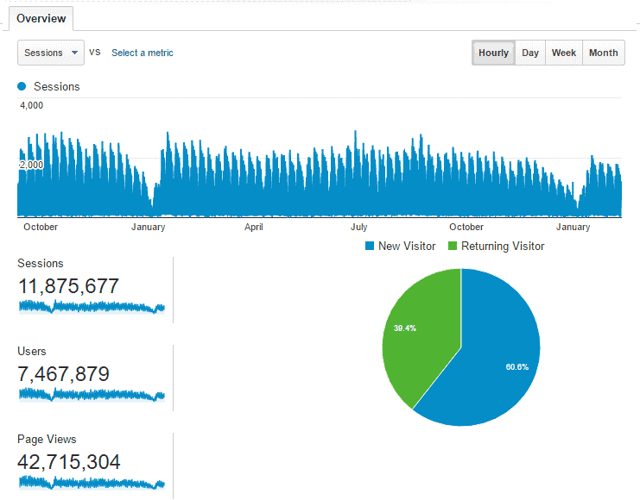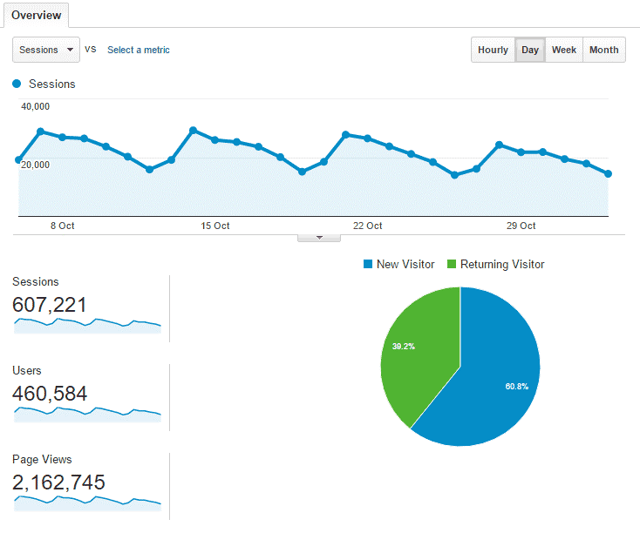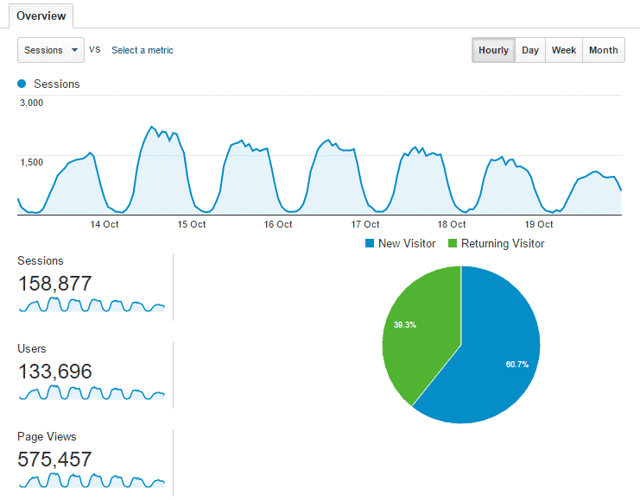It's a preconceived notion that January is the best time to recruit. With a new job being top of so many resolution lists surely it's the best time to recruit?
On the flip side, how many people follow through with their resolutions? Take another popular resolution, for example 'getting fitter'. How many gyms are left baron after the first two weeks of January?
In this article we give you the facts based on our own hiring data and other credible sources. We'll also provide you with further insights into other holiday peaks and troughs and some vital year-round tips to recruitment advertising success.
Recruitment has many facets to it. When it comes to reining in new staff, recruiters are often asking questions such as “How can I bring in new staff” and “Where can I find the best candidates”. But one question that certainly needs asking is “When should I be on the lookout for the right talent?”
Now, January has been built up as the spike period for a recruitment. After all, with the start of a new year, why not also make it the start of a new job?
And previous data certainly lays claim to this belief, depicting January as having the highest volume of job adverts. Even the tradition of New Year’s Resolutions plays a part in the surge, with many resolutions being career-oriented. Statistic Brain reported that in 2017, 4.1% of resolutions were focused around finding a better job.
However, contradicting data has come to light, revealing that while January might be a ripe time for recruitment, there are some disadvantages to aiming for the January slot. This surge has resulted in January being a competitive tug of war for the best talent. The volume of applications can rise rapidly, and risk of getting lost among the rabble, without employers seldom getting the change to go over them. Cambridge Network reporting that because some candidates are more selective about the jobs they apply for, businesses often end up paying 10-15% more on a basic salary. The recruitment process itself could also be lengthened by 5-10 working days.
Our own analytical data shows candidate seasons and their peaks and troughs

As you can see, the obvious lows here are Christmas and New Year. Job seekers simply don’t apply for a job in December like they do across the rest of the year with the lowest number of people visiting career sites and applying to vacancies on Christmas day. But this drop off is followed by a surge in January when people return to work.
Weakness or opportunity?
Research by Adzuna revealed that December was the second lowest month in terms of advertised vacancies. Now, while this may be seen as a dip in job applications, serious candidates may take advantage of the less competitive market. This may also work in favour of recruiters as they're able to spend more time interviewing candidates who are on seasonal leave.
Seasonal advertising opportunities
August and September are practical months for job seekers to apply for new roles. With August typically treated as ‘the holiday month’, you may benefit from a few applications from those suffering post-holiday blues. September tends to see a surge in job interest from candidates fresh out of education, although some graduates may try and get their foot in the door, applying for jobs as early as May. There's also an increase in the number of candidates looking for short term work to top up their income in the run up to Christmas when warehouse and distrubution centres typically recruit more staff to deal with the increased demand.
Some recruitment periods may be more ideal, depending on the sector you’re recruiting for. The Spring period is rife with opportunities related to weather-dependent sectors such as agriculture, construction, and tourism.
Tips to year round advertising success
So, when is the best day to post my job advert? Let’s take a look at some simple analytics for the month of October.

The dips that you see belong to Saturday and Sunday. Candidates simply don’t look for jobs at the weekend. This goes against popular belief, however the reason is a logical one. Dissatisfied employees cannot wait until the weekend. When the weekend finally comes around they're far too busy filling their time with activities that matter to them. It's not until they re-enter their workplace that they remember how much of a drag work has become.
Monday and Tuesday vie for top spot then applications tail off through the rest of the working week until we get to Friday, after which Saturday is the least busy day for candidates applying to vacancies, Sunday picks up a bit before Monday goes through the roof again, week in, week out. This trend is observable on all career sites that generate enough traffic to smooth out the spikes you see on low traffic sites. Low traffic sites don’t show the same statistical trend however they're still subject to it.
A closer look...
Let’s zoom in on just one week, what do you see?
 (Data reading Saturday - Friday).
(Data reading Saturday - Friday).
Each day is clearly defined with the lowest application rate being around 3am. It’s natural as most people are sleeping. Looking at the week days, there’s a morning peak followed by a smaller peak at lunchtime and a final surge at the end of the day. There are three days however that differ.
TGI Friday
On Fridays, you may have noticed that the third peak is missing. With people leaving work early or are simply concentrating on finishing the job at hand so they can have a stress free weekend.
Should I post on a Friday?
This one is a little more difficult to answer. Clearly the statistics show that your responses will be limited over the weekend, so it may be sensible to wait until Monday morning between 7 and 10:30am to post your vacancy for maximum exposure and response.
However, posting on a Friday afternoon can be beneficial for some industries so it’s worth examining your analytics data before you make your final decision.
It's the weekend, baby!
On Saturdays, there typically isn’t any particular trend as there are too few visitors to expose any useful trend data. Instead people are out shopping or spending time with their friends and family.
On Sunday, there is a clear trend. Overall, Sunday is always busier than Saturday and more people perform their job seeking activities on Sunday evening than at any other time over the weekend.
So, where and when should you post your vacancy?
The statistics show that the most candidates are active on the job boards looking for and applying for jobs between the hours of 9am and 5pm with a peak at around 11am followed by a slightly smaller peak at around 3pm.
To catch these peaks, you need to know how your target job boards perform when you post a job. Most job boards are near real time, some job boards however are batch processed a handful of times per day.
For the near real-time job boards, the ideal times to post your vacancies are between 7 and 10:30am followed by a posting window in the early afternoon between 12:30 and 2pm. These two windows will allow you to optimise your posts on the day you need to post them.
Depending on the needs of your business, your recruitment strategy may vary. You may have a quiet summer for recruitment followed by a loud autumn. Or you may even want to fall back on January as the spike period. But while January should be treated as ‘an’ ideal period for recruitment, it is not ‘the’ ideal period and could, as shown here, prove detrimental to the needs of your business.
Talentvine's recruitment software can enable you to better analyse your recruitment data and help determine which job boards are performing best for you. Find out more about our software here or request more information here.

